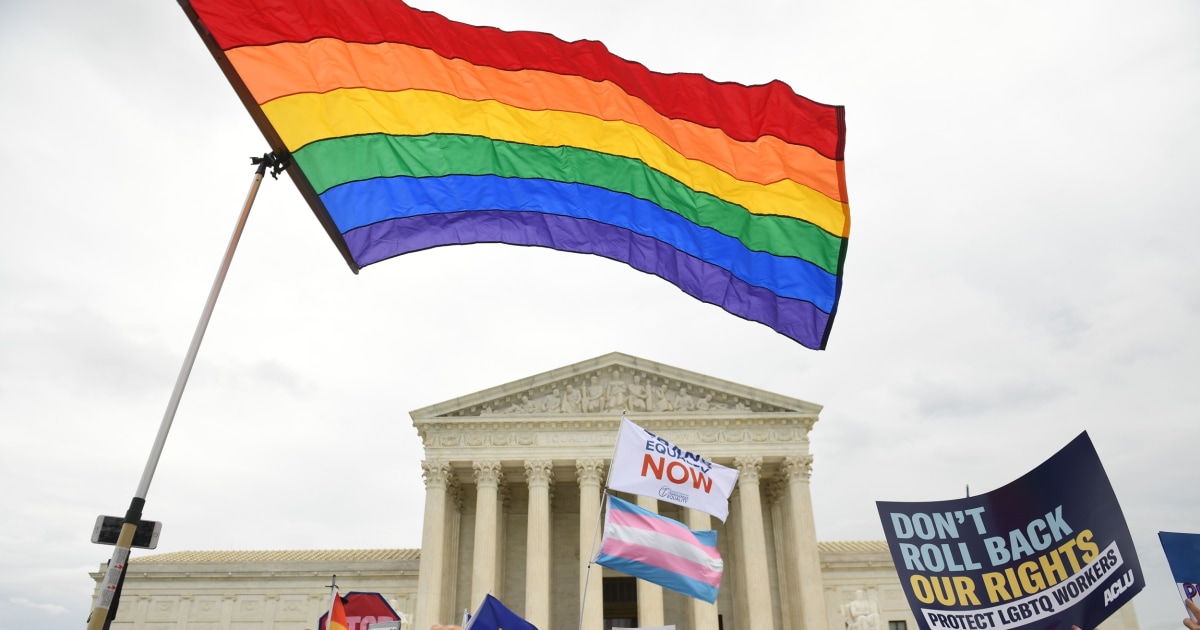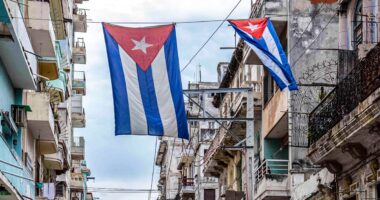
The Supreme Court has issued nearly all of its landmark decisions involving LGBTQ rights in the month of June, Pride Month, and the high court is expected to do so again this year with a ruling expected soon in Fulton v. City of Philadelphia. The court’s decision could have lasting implications for gay couples looking to start a family.
In March 2018, Philadelphia ended its foster-care contract with Catholic Social Services (CSS) due to the organization’s policy of not placing children with same-sex couples. The city’s nondiscrimination policy guarantees “full and equal enjoyment of services and facilities without discrimination or segregation” because of gender identity, sexual orientation, race, religion, marital status and a number of other characteristics.
In response, CSS filed suit, claiming the policy violated its First Amendment right to religious exercise and free speech. Losing in district court, the agency appealed to the 3rd U.S. Circuit Court of Appeals, which unanimously affirmed the lower court’s decision in April 2019.
The case then went to the Supreme Court, which heard opening arguments in November and is expected to render its decision before the current term ends this month.
Right now, laws in 11 states allow state-licensed foster and adoption agencies to claim religious exemptions from civil rights laws and reject otherwise qualified LGBTQ prospective parents, according to the Movement Advancement Project, an LGBTQ think tank. Another 18 states have no explicit protections for LGBTQ applicants in the foster and adoption system. In its filings, CSS maintains it has never been approached by a same-sex couple, and if it were, it would direct them to one of Philadelphia’s 29 other foster-care agencies.
The agency points to the Supreme Court’s 2018 decision in favor of Colorado baker Jack Phillips, who refused to sell a wedding cake to a gay couple because it violated his Christian beliefs on marriage. In a narrow ruling, Justice Anthony Kennedy determined Colorado displayed “hostility” toward Phillips’ religious views.
The agency and its supporters believe Philadelphia is demonstrating the same hostility.
They also maintain the city routinely circumvents its own anti-discrimination policy when it works to place Black children with families of color.
“[F]oster care is not a public accommodation nor a service to ‘the public,’” James Dwyer, a professor at William and Mary Law School and the author of “The Relationship Rights of Children,” wrote in the National Review. “Children are not generic goods for sale (like donuts or cups of coffee), to which everyone has an equal right. Instead, when the government is making decisions on behalf of foster children, it is obligated to act only in that child’s best interest.”
Dwyer argues CSS isn’t preventing LGBTQ prospective parents from fostering in the city. It’s simply “reaching deep into Philadelphia’s huge Catholic population to recruit and train an impressive number of highly motivated and dedicated foster parents.”
Unsurprisingly, LGBTQ rights advocates disagree.
“As long as there are kids out there who need a family, we should be doing everything we can to connect them with loving parents,” Rep. Sean Patrick Maloney, D-N.Y., a member of the House LGBT Caucus, said in a statement. “Ultimately, this case isn’t about religious freedom — it’s about granting a license to discriminate against families like mine. It hurts innocent children and denies them the family and support system they need.”
In 2019, Maloney, a married gay father of three, sponsored the Every Child Deserves a Family Act, which would prohibit child welfare agencies receiving federal aid from turning away potential families on the basis of religion, sex, sexual orientation, gender identity or marital status.
The current case may force the Supreme Court to revisit its ruling in Employment Division v. Smith, a 1990 case involving Oregon’s prohibition on smoking peyote, which some Native Americans consider part of their religious practice.
In a controversial decision, Justice Antonin Scalia found religion did not automatically provide “exemption from a generally applicable law.”
“The rule respondents favor would open the prospect of constitutionally required religious exemptions from civic obligations of almost every conceivable kind — ranging from compulsory military service to the payment of taxes … to health and safety regulation such as manslaughter and child neglect,” he wrote.
The high court could knock Fulton v. City of Philadelphia back down to the District Court to determine whether there was religious animosity, said Currey Cook, senior counsel at Lambda Legal and director of the organization’s Youth in Out-of-Home-Care project. It could also rule narrowly in CSS’ favor, forcing Philadelphia to change its foster care policies.
But it could rule more broadly that religious organizations can be exempt from anti-discrimination laws, even if they receive government funds.
“A broad ruling could have dire consequences for foster care,” said Stacey Stevenson, CEO of Family Equality, a nonprofit group that advocates for LGBTQ families. “It will limit the pool of available homes and hamper kinship placements. And It could open the door to discrimination for any number of reasons — race, religion, sex — if based on religion.”
Cook said a ruling in favor of CSS would “send a message to LGBTQ youth that they’re second-class citizens.”
“Those LGBTQ youth in the care of an agency that excludes same-sex couples unavoidably would receive the damaging message that the agency responsible for their welfare considers them to be unsuitable as parents and unequal as citizens,” Lambda Legal wrote in an amicus brief.
There are more than 420,000 children in the foster care system, according to the Administration for Children and Families.
Same-sex couples are seven times more likely to foster and adopt children than straight couples, Stevenson said, and they’re also more likely to adopt harder-to-place children, like those with special needs or who are older.
According to CSS, the problem isn’t too few families but not enough agencies.
“We need to have a diverse group of agencies to meet the needs of diverse families,” Lori Windham, senior counsel at Becket, the law firm representing the agency, told NBC News previously. “Shutting down Catholic Services is not going to make the crisis in foster care any better.”
With three Trump appointees on the bench — Neil Gorsuch, Brett Kavanaugh and Amy Coney Barrett — the court now leans to the right. But Cook said that’s not an automatic indicator of how it will rule.
“Yes, the fact that it’s a much more conservative court and allows religious accommodations where possible should give us pause,” he said. “But this case puts the government’s very ability to contract into question and opens up a can of worms about how businesses operate that might concern even conservative justices.”
In 2020, Gorsuch issued the majority opinion in Bostock v. Clayton County, Georgia, which determined that employment discrimination against people due to their sexual orientation and gender identity is tantamount to sex discrimination.
Barrett, a Catholic and a member of the charismatic Christian community People of Praise, was not on the court when it heard Bostock. That could make all the difference, Cook said.
“She comes from a bent of accommodating religion, so it remains to be seen how she’ll weigh in.”
Follow NBC Out on Twitter, Facebook & Instagram
Source: | This article originally belongs to Nbcnews.com










